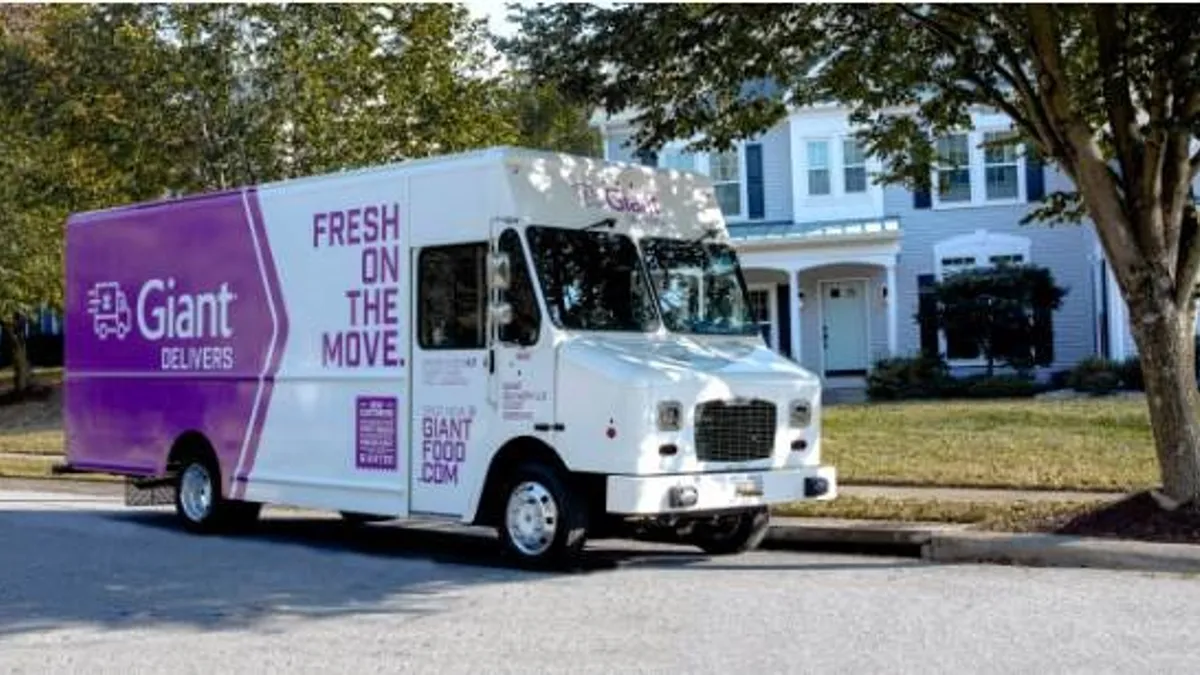When employees at a Trader Joe’s location in Hadley, Massachusetts, voted in mid-2022 to become the specialty grocery chain’s first unionized workers, the union they joined heralded the vote as an “incredible opportunity … to create a contract that works for all of us.”
But more than two years after Trader Joe’s United announced that it was ready to start negotiating employment terms for workers at the Hadley store, the approximately 80 associates who currently work there remain without a contract and have no sense as to when the two sides might reach an agreement on one, according to several crew members at the store.
“There's 100% no contract now, unless they have kept that information from all of us,” said Jared Rodericks, a worker at the Hadley store who has held various roles with the grocer since 2001. “But I don’t see how that would be possible, because if there was a contract, then everything would be legitimate. We would have to be paying dues and administrative fees.”
Rodericks said he initially voted in favor of unionizing the store, but later concluded that the store does not need to be unionized because he felt that Trader Joe’s United did not accurately portray working conditions at the Hadley location.
Workers at Trader Joe’s locations, including stores in Minneapolis; Oakland, California; and Louisville, Kentucky, have also voted to unionize — although Trader Joe’s challenged the vote in Louisville, claiming that several workers at the store and an attorney for the union attempted to tilt the election.
Crew members at other stores that Trader Joe’s United has sought to represent, including a pair of stores in New York City, defeated proposals to join the union.
Trader Joe’s United has not provided public updates on contract negotiations for any of the unionized stores since July, when the union said in an Instagram post that its team showed up for a negotiating session with the grocer but could not make progress because Trader Joe’s was represented only by outside lawyers. “Without their in-house counsel, Trader Joes’ legal team doesn’t have the authority to enter into agreements that would bring us closer to a contract,” the post said.
A Feb. 17, 2023, post on the union’s website said that crew members from the Hadley and Louisville stores had joined workers from Minneapolis for talks with the grocer, but that “Trader Joe’s did not engage with or counter our proposals.”
In a March 29, 2023, post on its website — the most recent update about negotiations on Trader Joe’s United’s site — the union said workers from those three stores had signed tentative agreements on issues including jury duty, military leave and severability, but did not make progress on other issues, including questions about pay.
Trader Joe’s United did not respond to requests for comment, and a spokesperson for the grocery chain declined to comment.
While talks between Trader Joe’s United and the grocer appear to have stalled, a group of workers at the Hadley store has taken steps to try to remove the union as the location’s representative, arguing that they do not need union representation.
“The managers do listen to employees. The managers do take care of us. They are sympathetic. I feel like corporate takes care of us,” said Les Stratford, who has worked at the Hadley location for 10 years.
Stratford, with help from the National Right to Work Legal Defense Foundation, is leading a drive to cut the Hadley workers’ ties with Trader Joe’s United through a federally supervised process known as decertification. According to Stratford, the National Labor Relations Board recently put a petition for a decertification vote he submitted in August on hold while it looks into unfair labor practice charges filed against the grocer by the union, adding that he has worked with the foundation to lodge an appeal.
Like other workers interviewed for this story, all of whom support the effort to decertify the union, Stratford said that while Trader Joe’s United has claimed the company has mistreated workers, his experience working for the retailer has been overwhelmingly positive.
Gael Humphrey, another employee at the Hadley Trader Joe’s, shared Stratford’s point of view about the store’s unionized status.
“I think one of the biggest challenges [to reaching] a contract is that Trader Joe’s already gives us really good benefits and treats us very well,” said Humphrey, who has been a Trader Joe’s employee for 13 years.
Michael Alcorn, a worker at the Hadley location who has testified before Congress that the labor organization has inaccurately characterized working conditions at the store, said he does not feel the union has been able to provide any benefits.
Stratford said that he and other workers who want to decertify Trader Joe’s United are collecting signatures from workers who also feel that way and are looking to gather signatures from at least 51% of the approximately 80 workers at the Hadley store.
The uncertainty over when the Hadley workers might be covered by a contract has so far had relatively little impact on the benefits the store’s employees receive, according to Stratford. He noted, however, that workers with less than 10 years of service saw reductions in their company-paid retirement plan contributions after the store became unionized.
The NLRB earlier this year issued a rule that makes it harder for workers to decertify a union, according to the Society for Human Resource Management. The change means a union now only needs to file an unfair labor practice charge with the NLRB to counter a decertification effort, SHRM reported in July.
One issue workers like the group in Hadley face is that union representatives are free to make promises and claims without worrying about being held accountable if they ultimately do not deliver on their promises, said Sid Lewis, an attorney at Jones Walker LLP in New Orleans who helps retailers and other employers navigate labor laws.
“They are salesmen, and so they have the right to puff and they have the right to say, ‘We’re going to get you this, we’re going to get you that,’ and they have no liability when it doesn't happen,” while employers face stricter rulers, Lewis said.


















